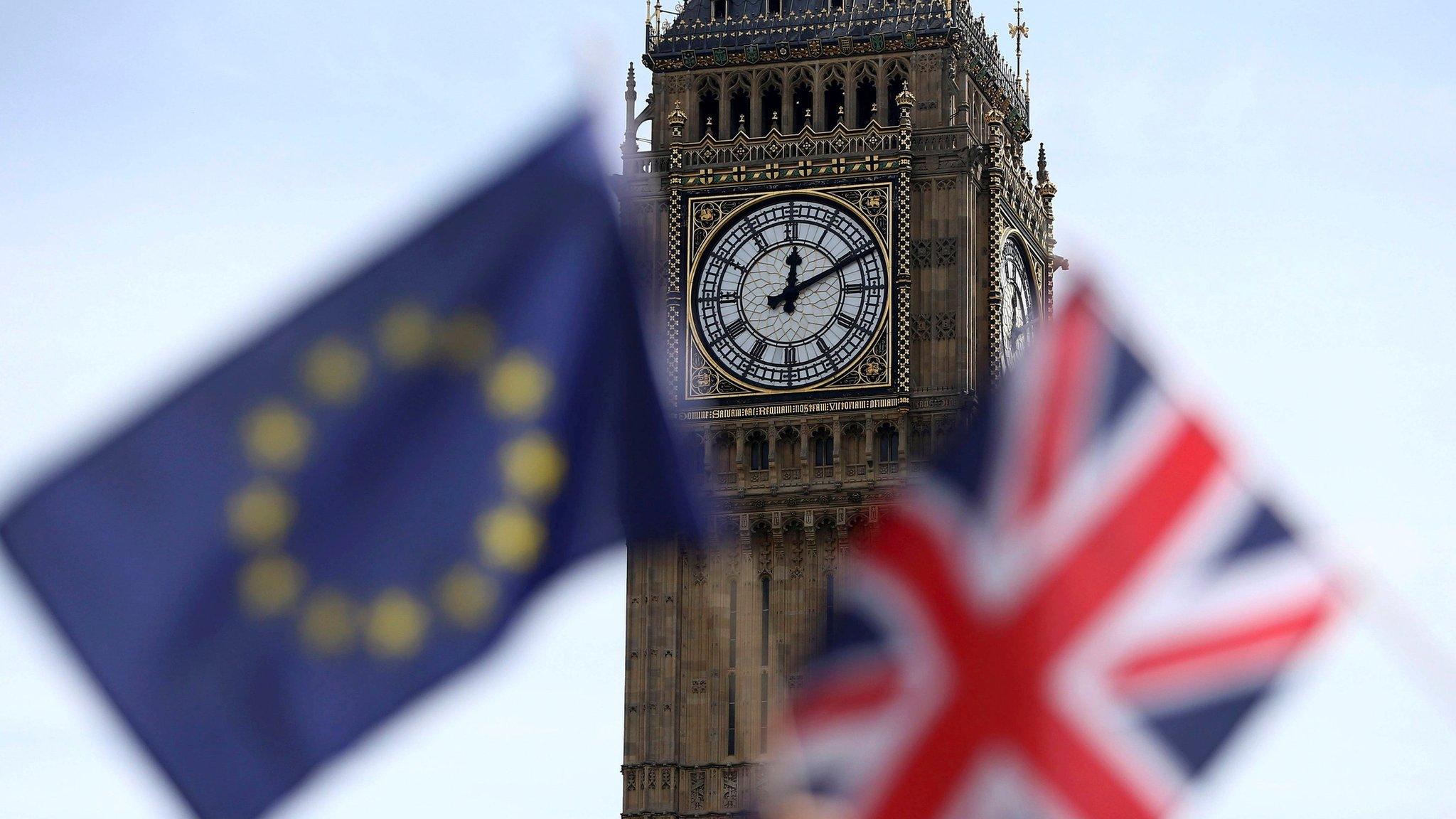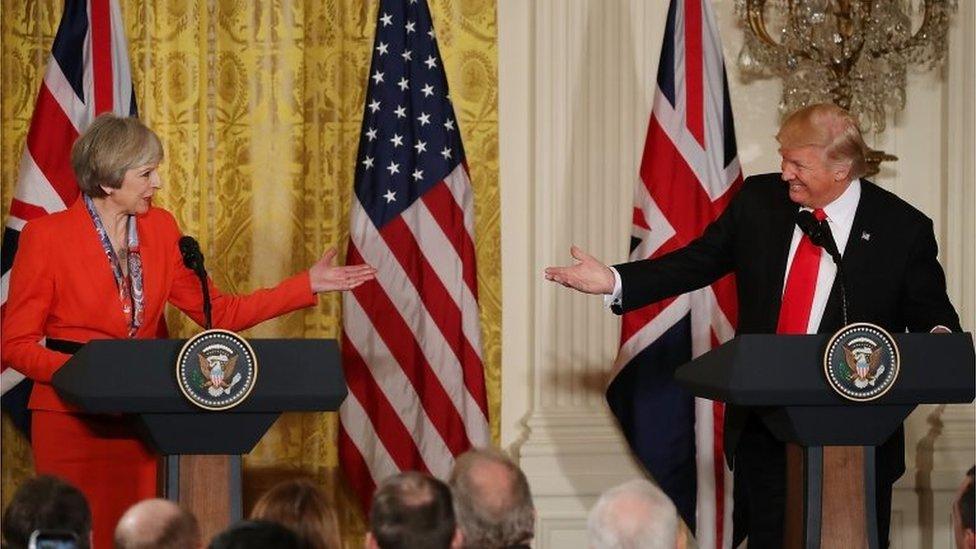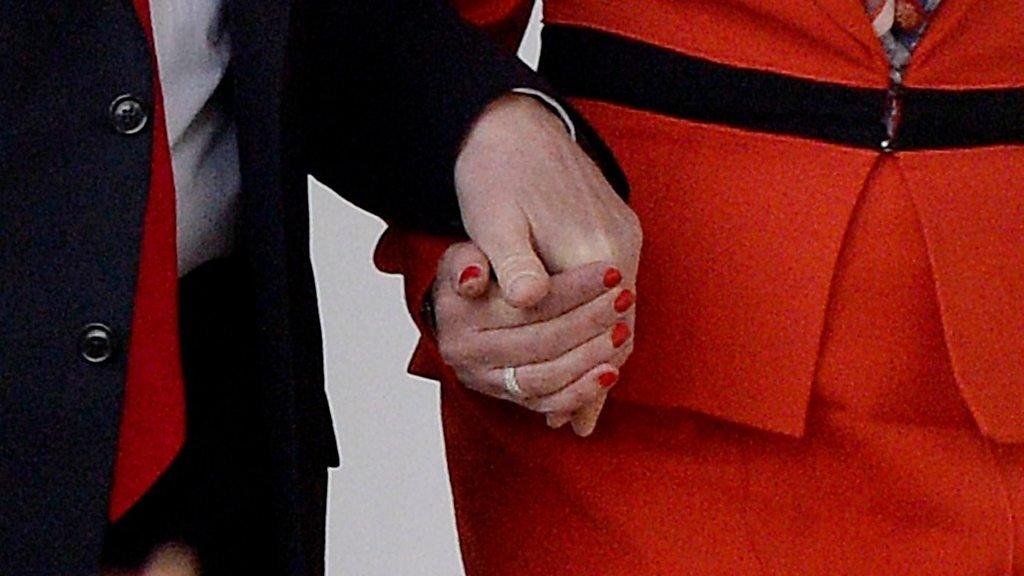Past the point of no-return
- Published

It's begun.
After decades of debate, years of acrimony over the issue in the Conservative Party, months of brutal brinksmanship in Westminster, and hours of debate this week, MPs have just approved the very first step in the process of Britain leaving the European Union.
There are many hurdles ahead, probably thousands of hours of debate here, years of negotiations for Theresa May with our friends and rivals around the EU, as she seeks a deal - and possibly as long as a decade of administrative adjustments, as the country extricates itself from the EU.
On a wet Wednesday, the debate didn't feel epoch-making, but think for a moment about what has just happened.
MPs, most of whom wanted to stay in the EU, have just agreed that we are off.
Rubber stamping
This time last year few in Westminster really thought that this would happen. The then prime minister's concern was persuading the rest of the EU to give him a better deal for the UK.
His close colleagues believed the chances of them losing, let alone the government dissolving over the referendum, were slim, if not quite zero.
Then tonight, his former colleagues are rubber stamping the decision of a narrow majority of the public, that changed everything in politics here for good.
This isn't even the last vote on this bill. There are several more stages, the Lords are likely to kick up rough at the start.
But after tonight, for better or worse, few will believe that our journey to the exit door can be halted.
As government ministers have said in recent days, the moment for turning back is past.
- Published27 January 2017

- Published27 January 2017
